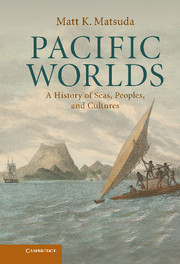Book contents
- Frontmatter
- Contents
- Illustrations
- Maps
- Acknowledgments
- Map
- Introduction: Encircling the ocean
- 1 Civilization without a center
- 2 Trading rings and tidal empires
- 3 Straits, sultans, and treasure fleets
- 4 Conquered colonies and Iberian ambitions
- 5 Island encounters and the Spanish lake
- 6 Sea changes and spice islands
- 7 Samurai, priests, and potentates
- 8 Pirates and raiders of the Eastern seas
- 9 Asia, America, and the age of the galleons
- 10 Navigators of Polynesia and paradise
- 11 Gods and sky piercers
- 12 Extremities of the Great Southern Continent
- 13 The world that Canton made
- 14 Flags, treaties, and gunboats
- 15 Migrations, plantations, and the people trade
- 16 Imperial destinies on foreign shores
- 17 Traditions of engagement and ethnography
- 18 War stories from the Pacific theater
- 19 Prophets and rebels of decolonization
- 20 Critical mass for the earth and ocean
- 21 Specters of memory, agents of development
- 22 Repairing legacies, claiming histories
- Afterword: World Heritage
- Notes
- Index
18 - War stories from the Pacific theater
Published online by Cambridge University Press: 05 June 2012
- Frontmatter
- Contents
- Illustrations
- Maps
- Acknowledgments
- Map
- Introduction: Encircling the ocean
- 1 Civilization without a center
- 2 Trading rings and tidal empires
- 3 Straits, sultans, and treasure fleets
- 4 Conquered colonies and Iberian ambitions
- 5 Island encounters and the Spanish lake
- 6 Sea changes and spice islands
- 7 Samurai, priests, and potentates
- 8 Pirates and raiders of the Eastern seas
- 9 Asia, America, and the age of the galleons
- 10 Navigators of Polynesia and paradise
- 11 Gods and sky piercers
- 12 Extremities of the Great Southern Continent
- 13 The world that Canton made
- 14 Flags, treaties, and gunboats
- 15 Migrations, plantations, and the people trade
- 16 Imperial destinies on foreign shores
- 17 Traditions of engagement and ethnography
- 18 War stories from the Pacific theater
- 19 Prophets and rebels of decolonization
- 20 Critical mass for the earth and ocean
- 21 Specters of memory, agents of development
- 22 Repairing legacies, claiming histories
- Afterword: World Heritage
- Notes
- Index
Summary
In the twelfth century, the Javanese king Joyoboyo penned commentaries and dictates on lontar leaves. He left a record of tales, including a famed story of struggle between two clans performed as a wayang, the shadow play in which finely crafted puppets gesture in light behind screens, suggesting imponderabilities of meaning. Joyoboyo was also a prophet, and inscribed for the future predictions of the return of a righteous king and ships sailing the skies.
In 1941, the nationalist Mohammed Tharmin addressed the Volksraad in Indonesia, a consultative body to the Dutch colonial government. He invoked for the crowd the prophecy of Joyoboyo that a yellow conqueror would come from the north and drive away the white skinned buffalo, remaining for the crop cycle of maize, after which an era of prosperity would reign. Dutch officials imprisoned Tharmin, fearing the popular fervor that the prophecy could stir. One year later, Japanese forces landed in Indonesia, overwhelming the disorganized Dutch, sending them off on work gangs and imprisoning them in concentration camps. Indonesians waved small Japanese flags and lined routes under the new military command, excitedly calling out “Joyoboyo” to the imperial troops. Scholars debated interpretations of the prophecy that foretold the coming of a yellow peacock, while the nationalist leader Sukarno claimed a new era of righteousness. In prison camps, Dutch internees remembered prophecies of yellow, bow-legged monkeys. All agreed, though, that the white buffalo would be driven out.
- Type
- Chapter
- Information
- Pacific WorldsA History of Seas, Peoples, and Cultures, pp. 275 - 292Publisher: Cambridge University PressPrint publication year: 2012



